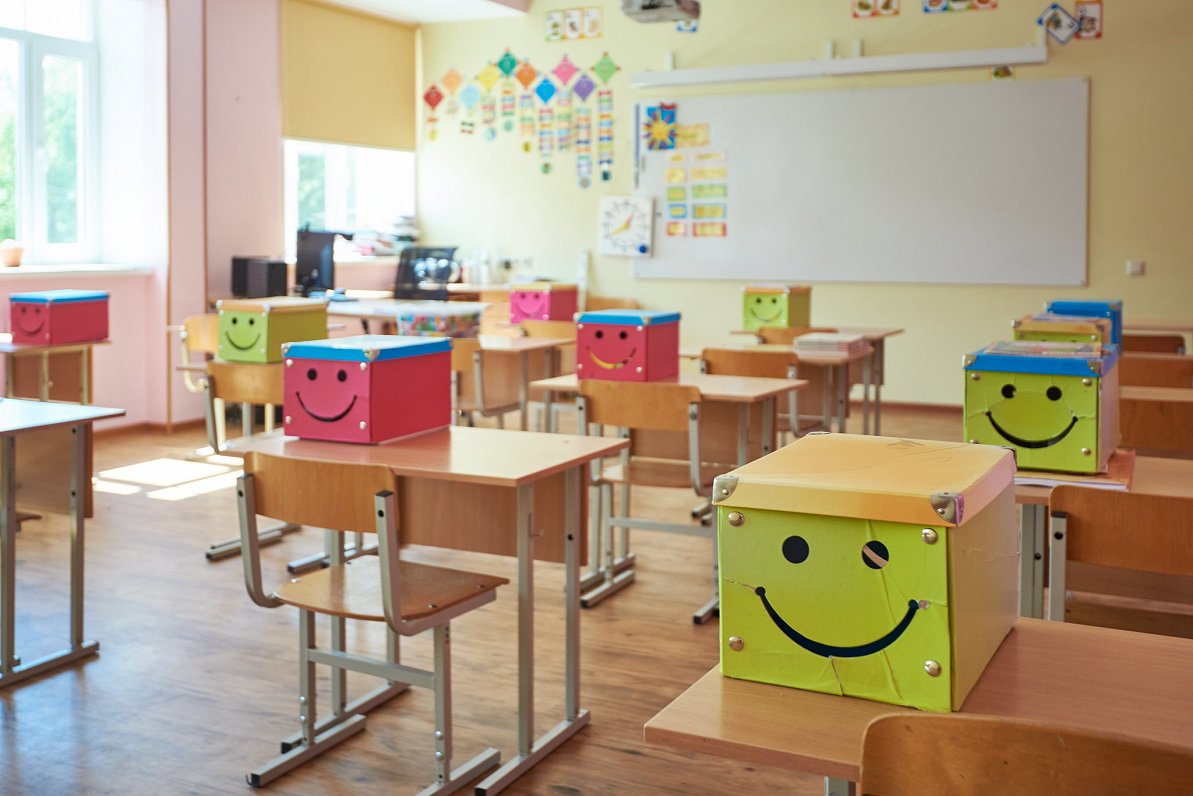It is not yet known exactly how much the first school mass testing cycle has cost the country. By September 1, as part of routine screening, four laboratories - “MFD Laboratory”, “E.Gulbja Laboratory”, “Central Laboratory” and “BIOR” - performed a total of 194,850 saliva tests for school employees and students. Of these, 289 tests were positive. After the first test round, it was clear that the capacity of individual laboratories was insufficient, but it is not intended to review contract volumes for the time being.
Weekly testing of pupils will be one of the tools to follow the epidemiological situation in schools. It is clear that the management of schools where there are not many vaccinated pupils and staff will face the most issues.
Rūdolfs Kalvāns, Chair of the Latvian Association of Education Managers, said that “some of the principals are already in shreds” because the primary work of being a principal is hampered not only by laboratories that can have logistical problems, but also by a part of the society: parents taking their children out of school or handing in unusual requests.
In Rīga Secondary School No. 34, there are 1265 students. Natālija Rogaļeva, the principal, said that the day before the first school day had been spent answering parents' calls and messages. More than 20 children were not allowed to be tested at all. Some parents are committed to teaching their children at home.
At the same time, however, the principal has received letters from six parents who object not only to the requirement for masks and testing but ask the school to provide evidence for the existence of the Covid-19 virus, and declaring that the school is participating in the testing of biological weapons and genocide against children.
"And so they write to us [..] that we do not have the right to collect anything, demand anything from them, and that is in contradiction with the Constitution, it is in contradiction with human rights,” said the principal. It is her duty to respond to all these letters.
Such letters were also received at other schools throughout Latvia. In order to provide appropriate replies, support has been provided by local governments and the Association of Education Managers of Latvia, helping to prepare the outline.
Several parents have announced that children will not pass tests, but they will come to school anyway. “In any case, we are prepared to look after these children for a certain period of time; God forbid they feel they are in some way discriminated against. We want everything to be gentle and constructive,” Rogajeva said.
Isolation algorithms
Despite the planned weekly routine tests in schools, the isolation algorithms are not intended to be changed - if there is a positive Covid-19 case in the classroom, the whole class and unvaccinated teachers who had been in contact with the infected will be quarantined for two weeks. (Quarantine may be discontinued after ten days if there are no symptoms and there is a negative test.)
In this way, in-person learning can be an illusion, since each classmate present potentially carries two weeks of remote learning. Several classes in different schools have already ended up in isolation following September 1. An exception is the vaccinated pupils and teachers who, if there are no symptoms of illness, can continue to attend school, but a Covid-19 test should be performed within a week.
The government's representatives have repeatedly stressed that on-site learning will be maintained as long as possible, but there is no definition as to when schools would be closed if it comes to that. If schools are open, safety measures elsewhere will have to be stricter.
“Work is aimed at keeping schools as open as possible as long as they can and, if possible, all the time. A lot of things we don't know, very much depends on our independent circumstances, starting from the behavior of the virus and ending with the behavior of members of Latvian society (..),” said the Minister of Health Daniels Pavļuts.
At the moment, the government has not agreed on a figure or an indicator to which radical decisions should be taken. It is concluded that the principle of traffic lights for the introduction of restrictions, as established by this spring, is partly outdated, since it should be noted that some of the population has been vaccinated and that Covid-19 is less likely to end with hospitalization, which in turn is an important indicator for imposing restrictions.





























